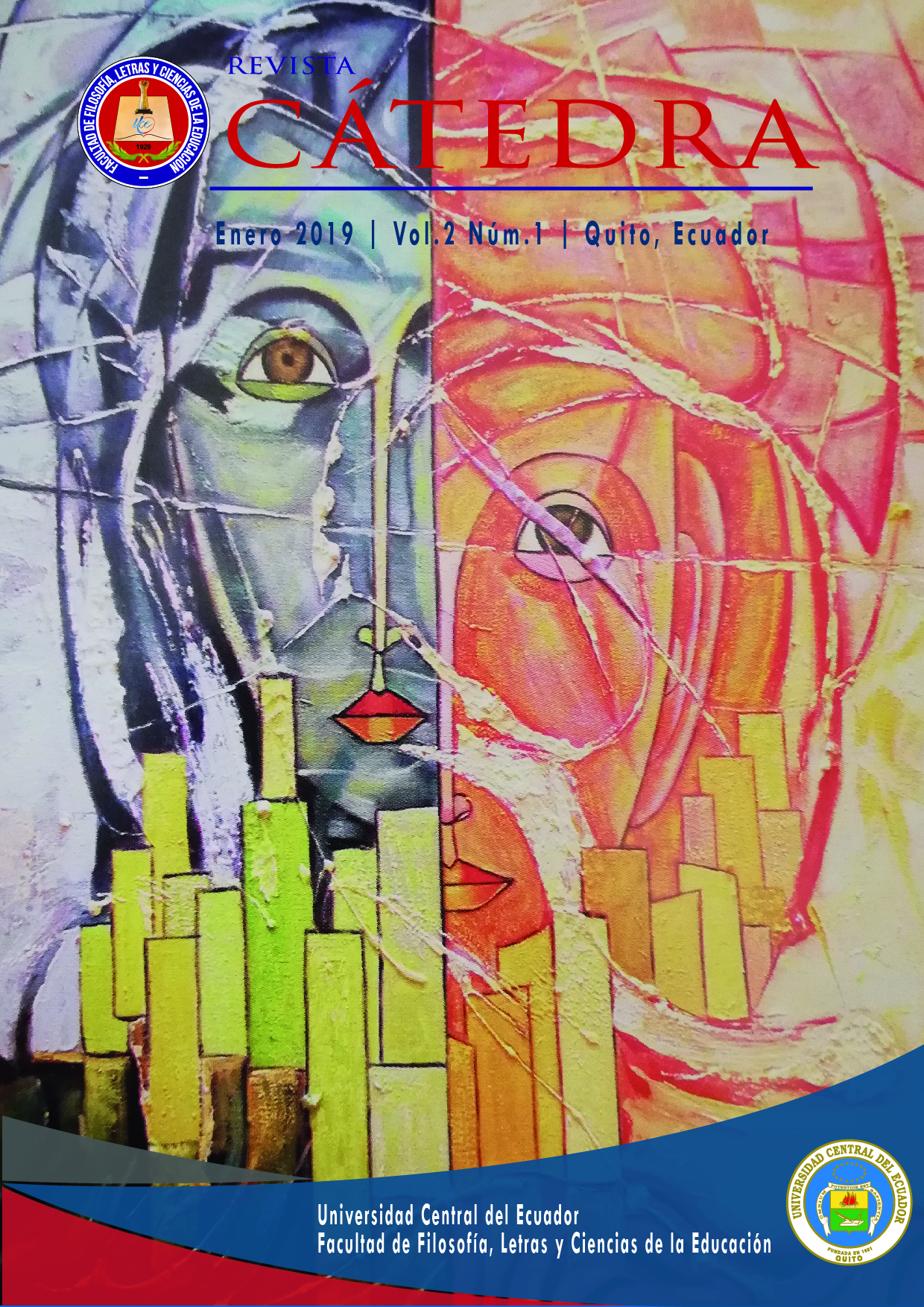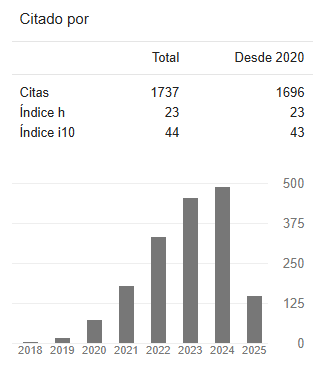Know, teach and change. Approach to technologies in higher education
DOI:
https://doi.org/10.29166/catedra.v2i1.1322Keywords:
higher education, intelligent technologies, teacher trainingAbstract
In order to rethink the role of the teacher in terms of new educational scenarios, this paper analyzes some technological trends that are affecting higher education. This context acquires particular relevance due to the nature of the technological changes and their manifestation in the field of education. The methodology consisted of analyzing some of the main trends that are announced in various researches and recent reports on the presence of technologies in the educational field. As a result, some technological developments adopted in the context of higher education are presented, particularly the smart technologies that have been incorporated into the teaching-learning process. Also, the skills demanded by professional and personal development in the face of new technological trends are considered. Finally, the role of the teacher is addressed in terms of the new scenarios posed by technology. The work concludes by pointing out that teacher training should be aimed at strengthening synthesizing, creative, respectful and connected thinking. It is about taking on the challenges of knowing, teaching and changing in the era of intelligent technologies.
Downloads
References
Accenture. (2018). It’s learning. Just not as we know it. How to accelerate skills acquisition in the age of intelligent technologies. Visit us at www.accenture.com/research
Astorga, O., Martínez, A. (2018). “Las redes de investigación. Nuevas formas de generación de conocimientos", en Autores varios, Experiencias en la Formación de Postgrado. Universidad Tecnológica Indoamérica.
Beck, U. (2000). Un nuevo mundo feliz. La precariedad del trabajo en la era de la globalización, Barcelona, Paidós.
Cabero, J. (2009). “La formación tecnológica del docente universitario”, en Fernandez, A. y Martínez, A. (Coordinadoras). Nuevos ambientes de enseñanza. Miradas iberoamericanas sobre tecnología educativa. Caracas. Editorial CEC, SA
CEPAL (2015). La nueva revolución digital. De la Internet del consumo a la Internet de la producción. Quinta Conferencia. Ministerial sobre la Sociedad de la información de América Latina y el Caribe. México.
Dorfsman, M. (2012). La profesión docente en contextos de cambio: el docente global en la sociedad de la información. RED DUSC http://www.um.es/ead/reddusc/6/marcelo_dusc6.pdf
Fullan, M. (2002) Las fuerzas del cambio. Explorando las profundidades de la reforma educativa. Madrid. Ediciones AKAL.
Fundación Telefónica. (2012). Aprender con tecnología. Investigación internacional sobre modelos educativos de futuro. Editorial Ariel, S.A.
García Aretio, L. (2017). Educación a distancia y virtual: calidad, disrupción, aprendizajes adaptativo y móvil. RIED. Revista Iberoamericana de Educación a Distancia, vol. 20, núm. 2, 2017, pp. 9-25. Disponible en http://www.redalyc.org/articulo.oa?id=331453132001
Gardner, H. (2010). Cinco mentes para el futuro. Barcelona: Paidós
Gardner, H. (2015). Inteligencias múltiples: la teoría en la práctica. Barcelona: Paidós.
Hardt, M. y Negri, A. (2017). Assembly. New York. Oxford University Press.
Martínez, A. y Amaro, R. (2008). Imperativos en la formación del docente universitario. Docencia Universitaria. pp.53-80.
McKinsey Global Institute. Skill-Shift-Automation-and-future-of-the-workforce-May-2018.
Monerero, C. (coord.). (2005). Internet y competencias básicas. Aprender a colaborar, a comunicarse, a participar, a aprender. Barcelona: Graó.
Morin, E. (1999). Los siete saberes necesarios para la educación del futuro. Barcelona. Editorial Paidós
NMC Horizon Report Preview (2018). Higher Education Edition
Pérez Gómez, A.I. (2012). Educarse en la era digital. La escuela educativa. Madrid. Ediciones Morata
Siemens, G., Gasevic, D., & Dawson, S. (Eds.) (2015). Preparing for the digital university: a review of the history and current state of distance, blended, and online learning. MOOC Research Initiative.
Shook, E. y Knickrehm, M., (2018). Reworking the Revolution, Accenture, [Accessed 06 August 2018]. Disponible en https://www.accenture.com/us-en/company-reworking-the-revolution-future-workforce
OECD (2018), Effective Teacher Policies: Insights from PISA, PISA, OECD Publishing. http://dx.doi.org/10.1787/9789264301603
Oppenheimer, A. (2014) Crear o morir. La esperanza de Latinoamérica y las cinco claves de la innovación. Bogotá. Penguin Random House Editorial, S.A.
Downloads
Published
Versions
- 2020-09-03 (2)
- 2019-01-30 (1)









